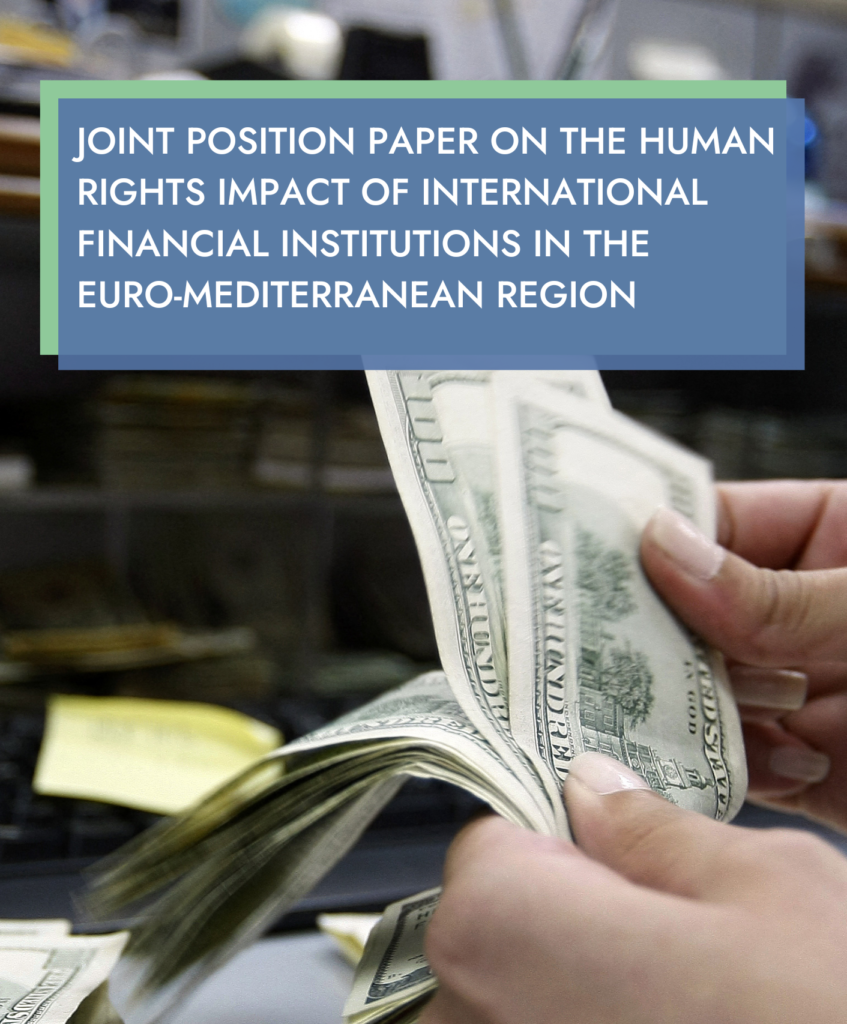Ahead of the upcoming Annual Meetings of the World Bank and International Monetary Fund (IMF) in Marrakech, EuroMed Rights’ Economic, Social and Cultural Rights Working Group publishes a joint position paper stressing the key issues of the IMF engagement in the Euro-Mediterranean region.
International financial institutions urgently need extensive reform to adapt to today’s realities, and human rights must play a central role in such reform, says civil society from the Euro-Mediterranean region. Policy making by institutions like the IMF lacks civil society voices and attention to the human rights impact transpiring from its actions and conditions imposed on borrowing countries. Furthermore, many policies ordered by the IMF in times of crisis, that are part of the conditionalities in loan agreements, have been documented as being detrimental to socio-economic human rights.
International financial institutions, the IMF in particular, play a crucial role in shaping economic policies in the Euro-Mediterranean region, in particularly in countries in the Middle East and North Africa, a region under substantial financial stress and socio-economic instability. The upcoming Annual Meetings in Marrakech are a crucial moment for civil society from the region to expose economic policies that are violating human rights and call for alternatives.
The organizations that are part of EuroMed Rights’ Economic, Social and Cultural Rights Working Group witness directly or indirectly the influence of international financial institutions in our work: by seeing the effect of their policies on vulnerable populations and by monitoring the developments in national policies influenced by international bodies. We therefore gathered our analyses in this joint position paper, to present common demands in the upcoming Annual Meetings.

